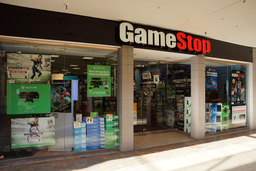The headlines at the beginning of this year touting the ever-expanding list of GameStop paper millionaires—Redditors and its WallStreetBets group and others following in their footsteps, who bought the stock well before its meteoric rise to a record closing price of $483 per share—were soon replaced by cautionary tales of millennials who lost it all. Yes, these market players (many young and less than sophisticated investors leveraging the power of the commission-free Robinhood stock trading app) were riding high, at least temporarily, while sticking it to the hedge funds and big time institutional investors that are the subject of their collective ire.
Seemingly everyone was captivated by the David vs. Goliath battle playing out on Wall Street when GameStop shares climbed over 1700% (from a market value of $2 billion to over $24 billion) from December 2020 through late January 2021, before it came tumbling back down to earth in early February. Since then, share prices have been on the upswing once more. As of this writing, Game Stop stock is trading in the neighborhood of $225.
While the recent climb has much to do with a cult following of individual investors hoping GameStop’s struggling business turns around, so-called meme-stock investing driven by Reddit and Robinhood represents much more than a goldmine for some and financial fiasco for many others. Beyond the GameStop gains, losses and gains again that’ve been fodder for coverage is the congressional and regulatory (read: SEC) fallout that‘ll ultimately define this rags-to-riches (or riches-to-rags) story.
The Truth, the Whole Truth, and Nothing but the Truth
Back in February, with burned GameStop investors—hedge funds and Redditors—finding themselves picking up the pieces, the U.S. Congress came calling. The House Financial Services Committee put the leader of Robinhood on the hot seat, questioning him (and a few others, such as Reddit CEO Steve Huffman) under oath.
How exactly did Robinhood boss Vlad Tenev find himself center stage in front of lawmakers such as Alexandria Ocasio-Cortez? The answer was short selling.
Hedge funds and other institutional investors have long used short selling to profit on equities, particularly microcap stocks. Borrowing shares and then selling them in anticipation of the stock price falling can create an extraordinary opportunity. Sellers look to cover these “shorts” by purchasing shares cheaply in the future, allowing them to close out their positions at a profit. This is a strategy not typically available to the average retail investor, but it was at the root of the GameStop frenzy.
And to an extent, it still is. But what the GameStop drama brought to the surface is a trend among bloggers and online financial platforms populated by small “anti-Wall Street” investors fighting this practice of shorting stocks. By way of Reddit, among other network communities, retail traders united to purchase blocks of GameStop stock to inflate prices and leave short sellers in a squeeze when it came time to cover. Robinhood made that possible and particularly attractive because it’s “free” to use and gamifies the process by offering interactive elements and game-like features.
Maybe too attractive. Robinhood had to temporarily halt trading in the midst of the GameStop fever because they weren’t sufficiently capitalized to support the volume of activity generated by the meme-stock mania. Enter Congress and the SEC.
The Question of Legality
There’s nothing illegal about short selling or touting stocks online. In fact, retail investors and day traders revolting against hedge funds do so at their own peril. Securities laws on the books since 1933 don’t protect the unwary from making potentially rash investment decisions, such as buying GameStop at $483 a share, so long as issuers give full and fair disclosures in their public filings.
In terms of the users of online platforms like Reddit touting particular stocks as “buys,” the practice isn’t unlawful (at least not presently) because they don’t get paid commissions. The same can be said for Robinhood’s method of selling order flow, which is regulated, disclosed and supports free trading, though arguably, the app’s gamification of the trading process may run afoul of FINRA rules.
What’s in Store in the Wake of GameStop?
The SEC may be cracking down. Indeed, the oversight agency is contemplating the imposition of regulations that create certain obligations on the part of low-and-no fee brokerages like Robinhood that have gamified high-stakes investing and stock trading. According to reports, the SEC may attempt to require Robinhood and platforms like it to warn investors about the pitfalls of buying risky stocks (such as GameStop) before a trade is completed. In so doing, the Robinhoods of the world (at least those operating in the U.S.) would be asked to act more like fiduciaries and not just passive processors of trades. However, imposing fiduciary status upon trading apps may be easier said than done, and such an action by the SEC would surely be met with litigation.
Looking forward, there’ll certainly be additional congressional hearings in the aftermath of the market disruption caused by the GameStop hysteria. Even so, the continued coming together of online communities to move markets is a virtual certainty—this by virtue of the incredible work of Redditors, Super Stock Bros. and others who weaponized GameStop (and now AMC Entertainment) against their hedge fund foes.
This blog post is not offered, and should not be relied on, as legal advice. You should consult an attorney for advice in specific situations.

